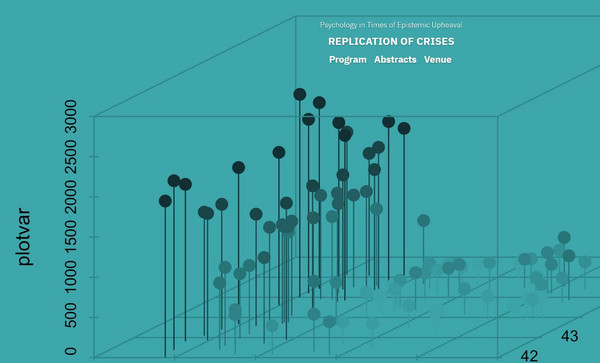Psychology might be broken, some skeptics warn (Woolston, 2015). It might even be trapped in a horrible space somewhere between the third and fourth circle of hell (Neuroskeptic, 2012). To say the least, psychology is enduring an age of epistemic upheaval. The name of this hell is “replication crisis”. Having already affected a range of disciplines in the medical and the life sciences, the replication crisis reached psychology in 2011, with a paper on false positive psychology (Simmons, Nelson, & Simonsohn, 2011). Since this time, the crisis has grown (Dominus, 2017). In a replication of 100 experimental and correlational studies published in psychology journals, only thirty-six percent of the results proved replicable (Open Science Collaboration, 2015). Many other major psychological findings could not be replicated, especially in social and clinical psychology: from the broadly published effects of ‘power posing’ to some well-known finding on behavioral priming and the famous Marshmallow test. The reactions within psychology have been vehement but not surprising. Many scientists are calling for more methodological rigor, for stricter statistical approaches that prevent p-hacking, or for the use of a replication-index.
In this workshop, we do not aim to identify new methodological tools to ‘repair’ psychology. Instead, we will place the replication crisis in its scientific, historical and social context. Therefore, we invite psychologists and historians as well as philosophers and sociologists of science to reflect on the epistemic dynamics within the discipline. The workshop will also discuss the effects of this crisis on public debates, on scientific discourses, and on practices of psychological research. One major question, which the workshop seeks to address, regards the continuities and/or discontinuities of the replication crisis: On the one hand, there are considerable continuities. The current crisis can be understood as just another example of the eternal recurrence of methodological crises – or at least of crisis discussions – in psychology (Stam, 2018). Moreover, focusing on replicability is not a new phenomenon in psychology, but continues older debates on epistemic ideals that go back to the 19thcentury (Mülberger, 2018). In view of these continuities, we could indeed speak of a replication of crises in psychology. On the other hand, however, the concerns regarding replication might indicate an epistemological rupture reflecting changed practices in, and ideas of, psychology. There are indications of at least two kinds of discontinuities. Firstly, the crisis might mark the endpoint of an epistemic shift from attending to experimental systems in the laboratory to the post-experimental engagement with laboratory data. Secondly, the crisis might imply a reversal of criteria of scientific prestige: While failed replications and non-significant results were little appreciated before, they contain a considerable potential to gain scientific attention now. In polemic terms, a researcher who fails to replicate a major experiment is more likely to attract recognition than one, who publishes new psychological findings.
